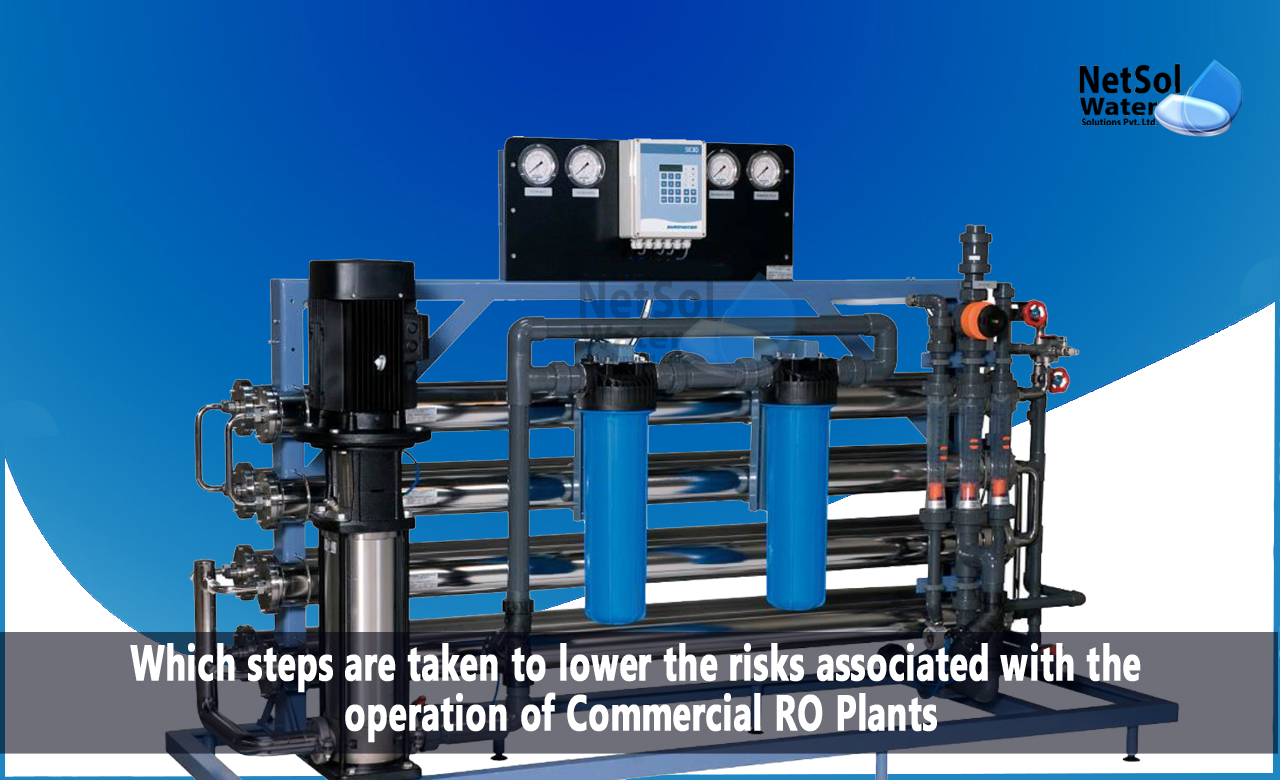Steps taken to reduce the risk of commercial RO plants' operation
Reverse osmosis is one of the most important techniques for water filtration and consumption. Although, the water purification system was primarily designed for industrial use, it was later accepted for commercial and residential use, when its effectiveness was tested.
The RO system (reverse osmosis plant) is a perfect healthy technique to attain water purity, suited for drinking and cooking. Reverse osmosis filters take away impurities and eliminate undesired impurities, from ordinary tap water. There are a variety of factors that can affect the functioning of a commercial RO plant; as a result, precautions must be taken to reduce these risks, so that the RO plant can operate safely and successfully.
Let’s understand the steps which can be taken to lower the risks, associated with the operation of a commercial RO Plant!
If the RO system is utilized regularly for a number of years, it will deteriorate and have several flaws. In addition to routine maintenance on the reverse osmosis system, the storage tank also has to be cleaned because the water still seems unclean, even after the reverse osmosis system has undergone preventive maintenance. Also, you must frequently use services for water filtration.
Every reverse osmosis system has several operational problems that you may have already encountered, or that you may not have yet discovered.
Nonetheless, several options exist, and they are described below:
1. Noisy drain
It is one of the most typical issues with reverse osmosis systems. This commonly happens when a new system is installed, or after a filter cartridge has been changed, pushing air to drain.
For assistance, you must consult a commercial RO Plant business expert.
Pro tip: Straightening the pipe is an additional choice. You could double-check your system gaps, in case the noise problem persists.
2. Leaky water faucet
Some leaks can be brought on by improperly installed system parts. Identify the source of the leak as well. Sometimes it emerges from the faucet's base. The hose can then be pushed deeper into the valve, drain saddle, and connector, while all threaded connections can be tightened once more.
3. Water that smells awful
Bad odours are caused by standing water. Moreover, filter and membrane wear are the main causes of the bad water.
Simply swap out the worn components, and the water will be delightful once again. To reduce air bubbles, stored water should be changed frequently.
4. Continuous operation of Commercial RO Plants
This happens when the shutdown valve malfunctions or the check valve is broken. Even if the membrane is improperly fitted, the system will still work.
The pressure inside the storage tank must be measured in order to stop the constant flow of water. It is best if the pressure is 3540 psi. Just replace the check valve if it is damaged.
5. Water moves more slowly than usual
Pressure is a factor in this issue as well. Make sure that the water pressure in the RO tank is at its ideal level. If not, carefully raise the value to 6–8 psi using a pressure gauge. The entire tank may need to be replaced if the bladder in the tank is unable to withstand the pressure.
Conclusion
If the above discussed steps will be taken, then the risks associated with the operation of a Commercial RO Plant will be lowered, and the commercial RO Plant can effectively treat the water, and make it fit for consumption.
How can we assist?
Netsol Water is a well-known manufacturer in the field of water treatment. We don't just consider operational aspects; we also look for solutions to satisfy the needs of our clients. Our dedicated team puts in a lot of effort to offer RO-filtered water treatment solutions.
The company also offers a wide range of water treatment alternatives, including Water Softeners, Industrial RO Systems, and much more. To discuss your needs, contact us at 9650608473, or send an email to enquiry@netsolwater.com with your inquiry.



